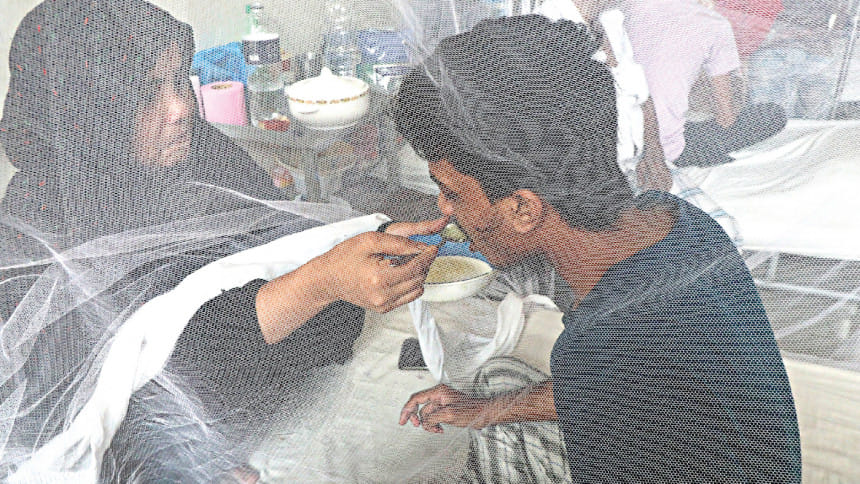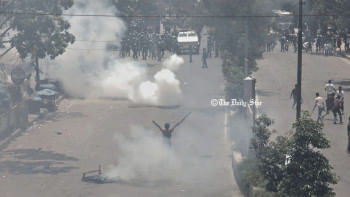Dengue Outbreak: August sets monthly case record

With 2,201 infections in the last 24 hours till yesterday morning, the total number of dengue cases in August rose to 56,798, setting a monthly record.
The previous record was set in August 2019, when 52,636 cases were recorded across the country.
According to the Directorate General of Health Services, at least eight dengue patients died in the last 24 hours till yesterday morning.
Of the eight deaths, six were reported in the capital.
Dengue has so far claimed at least 514 lives this year and nearly 108,630 were infected, making this the deadliest year since the first recorded epidemic in 2000.
Of the total infected this year, 56,677 are from outside Dhaka.
Hospitals, especially in Dhaka, are struggling to accommodate the large number of patients suffering high fever, joint pain, and vomiting, health officials said.
The government has taken initiatives to limit the spread of mosquito-borne diseases, they added.
Although the government has launched drives and stepped up efforts to curb the outbreak in Dhaka, experts say taking necessary measures outside the capital has become a necessity.
According to Entomologist Kabirul Bashar of Jahangirnagar University, multiple reasons contributed to the rising rate of infection outside the capital.
A significant number of Dhaka dwellers have already developed antibodies to one or more serotypes of the virus. Also, the authorities outside Dhaka have not taken adequate measures to control Aedes breeding or raise awareness, he said.
"The extended monsoon this year is also contributing to the rising number of cases," he added.
He also blamed unplanned urbanisation in the rural areas for the situation.
Entomologist GM Saifur Rahman stressed the lack of necessary equipment to conduct anti-mosquito drives.
"It would be much easier to control dengue if a vector management authority were set up," he said.
HM Nazmul Ahsan, associate professor at Shaheed Suhrawardy Medical College Hospital, said a patient with the symptoms -- severe stomach aches, breathing difficulties, severe weakness, bleeding from gums or nose, and vomiting -- needs to be hospitalised immediately.
"If not hospitalised within 24 hours, the patients can develop dengue shock syndrome," he said.
There are two types of dengue shocks -- compensated and decompensated. If a patient is hospitalised immediately after their compensated shock, there are 50 percent chances of healing.
There is no vaccine or drug that specifically treats dengue, which is common in South Asia during the June-to-September monsoon season when the Aedes aegypti mosquito, the carrier of the deadly virus, thrives in stagnant water.

 For all latest news, follow The Daily Star's Google News channel.
For all latest news, follow The Daily Star's Google News channel. 



Comments